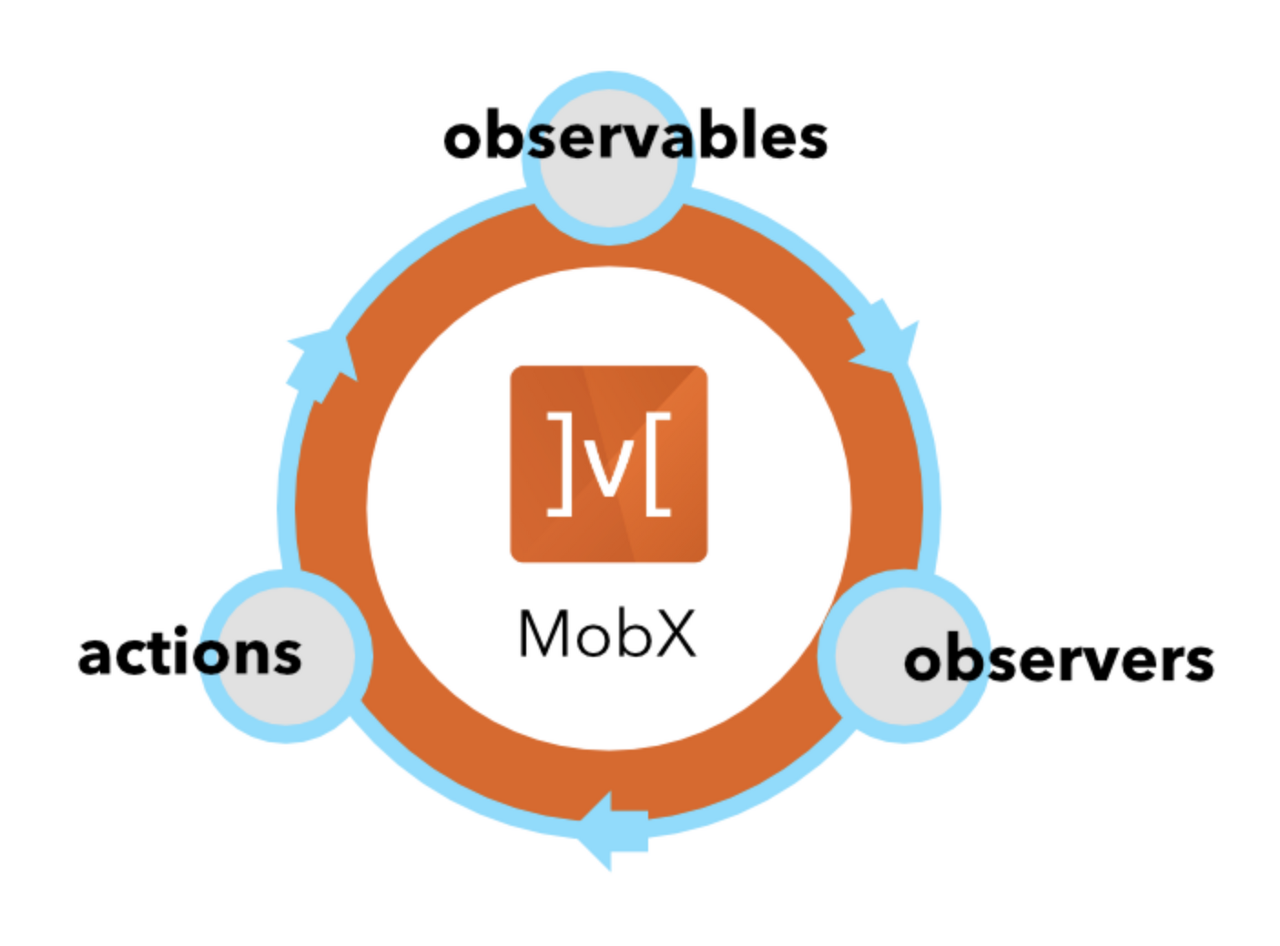22.2.6 (일) +14days
MobX
https://mobx.js.org/README.html
Simple, scalable state manage ment

A quick example
import React from "react"
import ReactDOM from "react-dom"
import { makeAutoObservable } from "mobx"
import { observer } from "mobx-react"
// Model the application state.
class Timer {
secondsPassed = 0
constructor() {
makeAutoObservable(this)
}
increase() {
this.secondsPassed += 1
}
reset() {
this.secondsPassed = 0
}
}
const myTimer = new Timer()
// Build a "user interface" that uses the observable state.
const TimerView = observer(({ timer }) => (
<button onClick={() => timer.reset()}>Seconds passed: {timer.secondsPassed}</button>
))
ReactDOM.render(<TimerView timer={myTimer} />, document.body)
// Update the 'Seconds passed: X' text every second.
setInterval(() => {
myTimer.increase()
}, 1000)
Installation
npm install mobx mobx-reactTen minute introduction to MobX and React (MobX 학습시 읽어봐야 할 자료)
https://mobx.js.org/getting-started
MobX: Ten minute introduction to MobX and React
MobX Ten minute introduction to MobX and React MobX is a simple, scalable and battle tested state management solution. This tutorial will teach you all the important concepts of MobX in ten minutes. MobX is a standalone library, but most people are using i
mobx.js.org
A simple todo store...
class TodoStore {
todos = [];
get completedTodosCount() {
return this.todos.filter(
todo => todo.completed === true
).length;
}
report() {
if (this.todos.length === 0)
return "<none>";
const nextTodo = this.todos.find(todo => todo.completed === false);
return `Next todo: "${nextTodo ? nextTodo.task : "<none>"}". ` +
`Progress: ${this.completedTodosCount}/${this.todos.length}`;
}
addTodo(task) {
this.todos.push({
task: task,
completed: false,
assignee: null
});
}
}
const todoStore = new TodoStore();The gist of MobX
MobX distinguishes between the following three concepts in your application:
- State
- Actions
- Derivations
MobX core
강의에서는 MobX 코어 부분을 주로 다뤘다. 하지난 내용이 방대해서 텍스트로 애매하게 정리하기는 어려웠다. MobX를 실제 사용하게 될 때 이 부분은 다시 읽어봐야겠다.
MobX V6에서는 원래 알고 있었던 MobX를 어노테이션을 활용해 사용하는 방식과 사용 방법이 달라졌다. Observer를 사용하는 핵심 원리는 같겠지만 뭔가 복잡하게 느껴진다. MobX의 장점이 구버전의 Redux의 복잡함을 단순화 할 수 있다는 점이었는데 Redux Toolkit의 등장으로 MobX의 장점이 무엇인지 궁금해진다.
실제 상태관리 라이브러리를 사용하게 될 때 Redux Toolkit과 MobX를 한번 비교해 봐야겠다.
정리
Smple ⇒ No Boilerplate
Action ⇒ Derivative를 바꾸는 유일한 수단
Reactive Programming ⇒ Observable / Observer
with React ⇒ re-render issue (small component)
makeAutoObservable ⇒ makeObservable을 보다 쉽게
actions ⇒ runInAction / flow
Computed ⇒ getter pure
reaction ⇒ side effect
reactive ⇒ observable인 것이 바뀔 때


본 포스팅은 패스트캠퍼스 환급 챌린지 참여를 위해 작성되었습니다




댓글